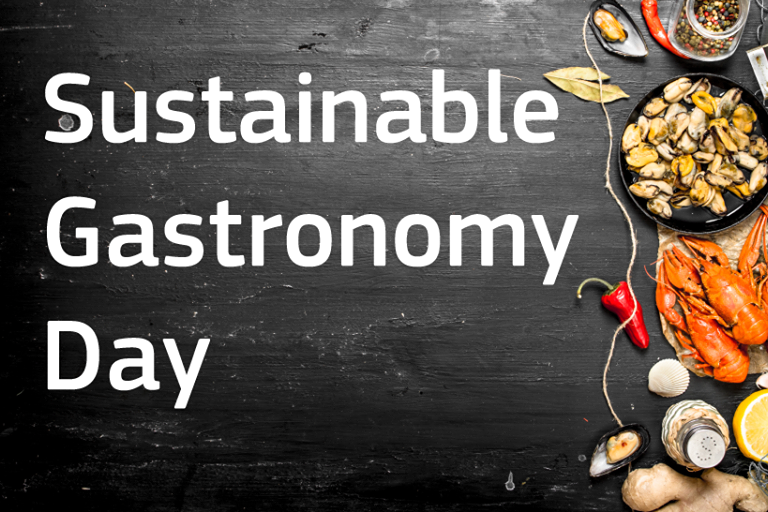This Monday, June 18th marks the third celebration of the United Nation’s Sustainable Gastronomy Day. The main goal is to raise awareness about gastronomy’s contribution to sustainable development on a global level, however the day’s objectives are threefold. For one it aims to highlight gastronomy as a cultural expression of the world’s rich diversity. Secondly, it strives to reaffirm that all cultures actively contribute to and play a crucial part in sustainable development. Finally, to emphasize the need to shift the world’s attention as to the important role sustainable gastronomy can play towards the collective achievement of the Sustainable Development Goals. To contribute to the successful implementation of the SDGs, Sustainable Gastronomy Day promotes: sustainable agricultural development, food security, balanced nutrition, sustainable food production, and the conservation of biodiversity as emphasised by SDG 2: Zero Hunger, and SDG 12: Responsible Consumption and Production.
The Food and Agricultural Organisation of the United Nations (FAO), which along with UNESCO established the Sustainable Gastronomy Day, has defined a clear set of five principles to enable a smoother transition to a more responsible consumption and use of natural resources. The principles outlined are:
– Resource efficiency improvement for sustainable agriculture
– Immediate, direct action to save, safeguard, and improve natural resources
– Ensure agricultural practices that fortify, and protect the environment, and social well-being
– The key to sustainable agriculture is the pliability of communities, the environment, and people
– Ultimately, responsible practices and effective governance mechanisms need to be implemented to increase the sustainability of food
More information, actions and assets can be found on the UNTWO’s Gastronomy Network. Amongst the many ways for hospitality businesses to get involved in Sustainable Gastronomy Day, Considerate Hoteliers recommends the: promotion of local produce in all food and beverage outlets; use of seasonal ingredients wherever possible; engagement with suppliers to ensure the sustainability of products from farm to fork and minimisation of food waste. To learn about more solutions and activities please do get in touch with our team at any time.



